2019 public policy climate highlights
We regularly conducted private briefings for parliamentarians and government departments on a wide range of climate related topics in. Our members also had numerous state, national and international advisory roles. In 2019, the CCI Director alone gave 78 briefings and lectures, reaching an estimated 11,000 people.
Here are some examples of policy engagement and outreach by Climate Change Institute members.
UN Climate talks in Madrid
The annual United Nations climate talks, Conference of the Parties (COP25), took place in Madrid in December 2019 and ANU climate researchers and students were well represented. Professor Frank Jotzo, Hon Professor Howard Bamsey, Dr Siobhan McDonnell (negotiating on behalf of Vanuatu), Dr Ian Fry (negotiating on behalf of Tuvalu), PhD students Aaron Tang, Melanie Pill and Masters student Ewelina Przybyszewski all attended the talks. Subsequently, the CCI ran a public lecture “Deciphering the UN Climate Talks in Madrid” outlining perspectives from ANU experts and business and NGO representatives.
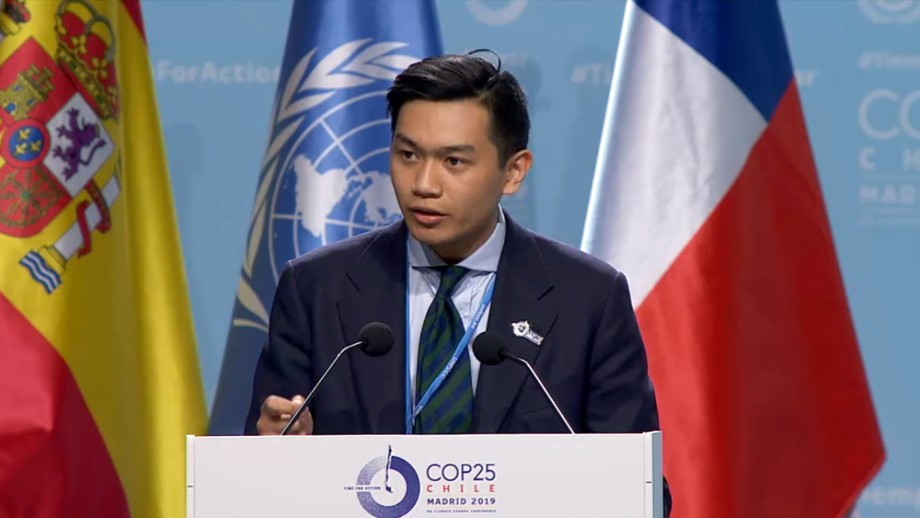
ACT Climate Change Council
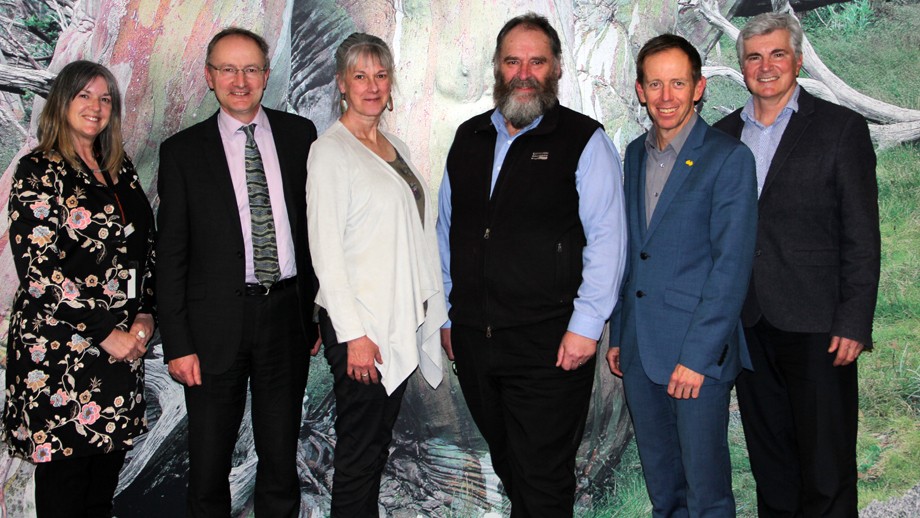
The ACT Climate Change Council plays a key role in advising the ACT Minister for Climate Change and Sustainability on climate related issues. In 2019, two more ANU researchers were appointed as new members. Professor Mark Howden, CCI Director, and Associate Professor Cris Brack, Fenner School of Environment & Society, joined Honorary Professor Penny Sackett (also a CCI member) who has been appointed to the role of Chair. These appointments build on the great work of CCI members, Professor Frank Jotzo, Professor Barbara Norman and Emeritus Professor Will Steffen, who have come to the end of their term at the Council.
Policy engagement in the Pacific
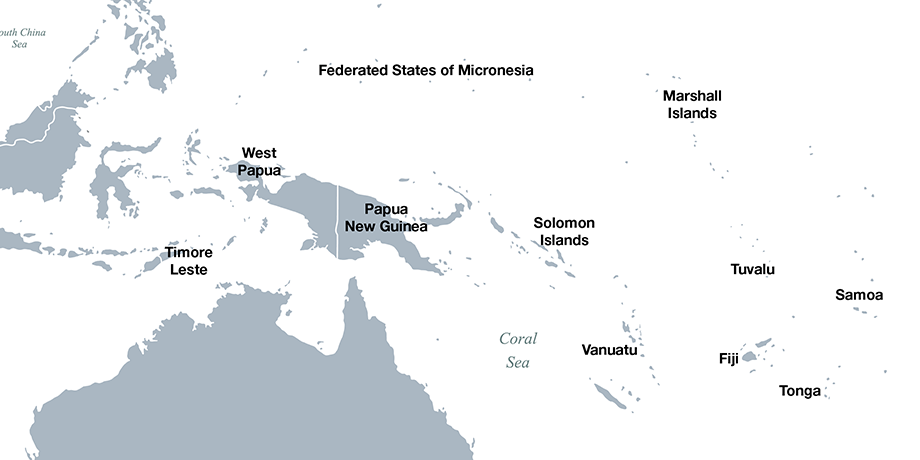
CCI members are engaged with policymakers across the entire Pacific region on a range of climate related issues.
Here are a few examples:
Associate Professor Katherine Daniell is working on water governance, risk management, sustainable urban development and climate adaptation in Tonga.
Dr Steven Crimp is working with the PNG Government on disaster response and the development of early warning systems.
Dr Siobhan McDonnell is working on issues related to gender and climate change as well as displacement and resettlement in the context of disaster in Vanuatu and Oceania.
Dr Ian Fry has facilitated training workshops in multiple Pacific countries on developing a robust negotiating position at the UN climate talks.
Dr Rebecca Monson is working on climate change, displacement and property rights in the Solomon Islands.
ANU joins Global Alliance of Universities on Climate
In January 2019, the Vice Chancellor signed ANU up to the Global Universities Alliance on Climate Change (GAUC). GAUC has been designed to facilitate greater levels of collaboration on climate issues, greater engagement with climate stakeholders and the promotion of environmental practices by universities in line with UN conventions on climate change and Sustainable Development Goals. CCI members have hosted and attended various GAUC meetings in 2019 and will continue to pursue these goals, particularly around shared research agendas and campus climate action.
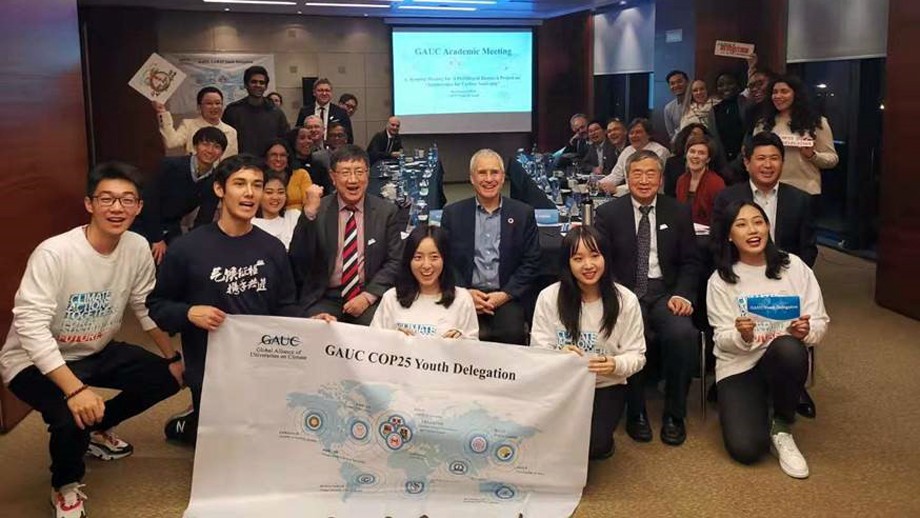
ANU contributions to the Intergovernmental Panel on Climate Change
The IPCC is tasked with providing policymakers with regular scientific assessments on climate change, its implications and potential future risks, as well as putting forward adaptation and mitigation options. It has 195 member countries.
Leadership roles with the IPCC
In 2019, ANU researchers were heavily involved in two IPCC Special reports (see below). Five other ANU researchers have leadership roles with the IPCC, namely Professor Frank Jotzo, Professor Xuemei Bai, Dr Kathryn Bowen, Dr Joelle Gergis and Dr Steve Crimp, with numerous other ANU researchers acting as report reviewers. Professor Mark Howden plays a particularly strong role as a Vice-Chair of the IPCC working group on impacts, adaptation and vulnerability.
IPCC Special Report on Climate Change and Land
Released August 2019
Unprecedented land exploitation is contributing to climate change, whilst at the same time land potentially offers solutions to reducing greenhouse gas emissions, including reforestation and storing carbon in soil.
Given the stark warnings outlined in these reports, it’s vital that the findings are integrated into policy and management decisions urgently – we have no time to lose – Professor Mark Howden
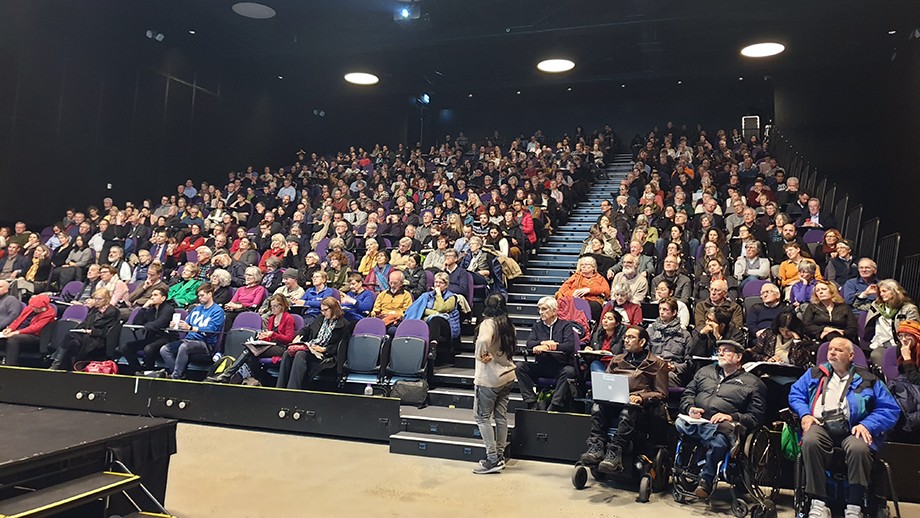
IPCC Special Report on Ocean and Cryosphere in a Changing Climate
Released September 2019
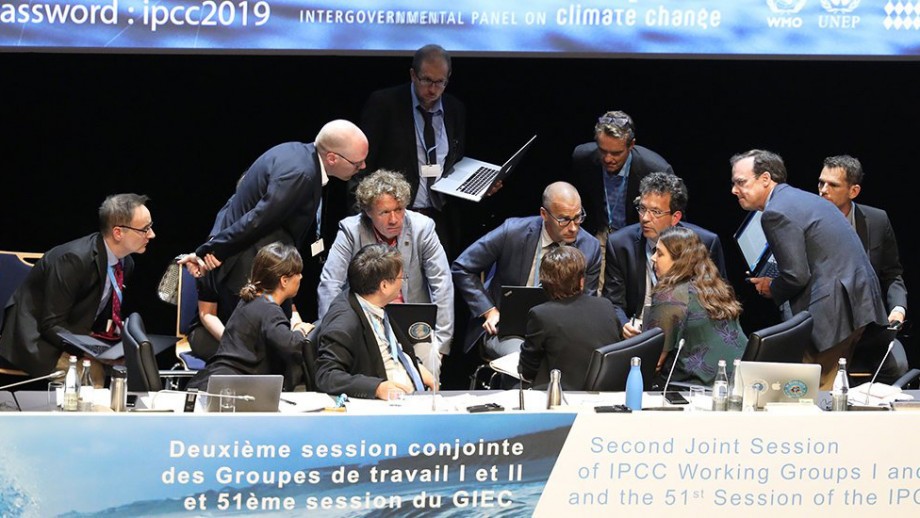
The earth’s ocean and ice are under threat from climate change, but there’s still time to avoid the worst scenario if we act urgently. “Australia’s coastal cities and communities can expect to experience what was previously a once-in-a-century extreme coastal flooding event at least once every year by the middle of this century – in many cases much more frequently”, said Professor Abram. “Unless we take action now, we’ll be looking at many more extreme events coinciding, dramatically impacting our economy, way of life and environment.”
CCI wins Vice Chancellor’s award for Impact and Engagement
In 2019, the CCI was honoured with a VC’s award for our work communicating the findings of three IPCC Special Reports. “We’ve given numerous media interviews, written articles and hosted and given multiple public lectures, parliamentary briefings and seminars, briefings and roundtable discussions for policymakers,” said Professor Howden. “The community have been highly engaged.”
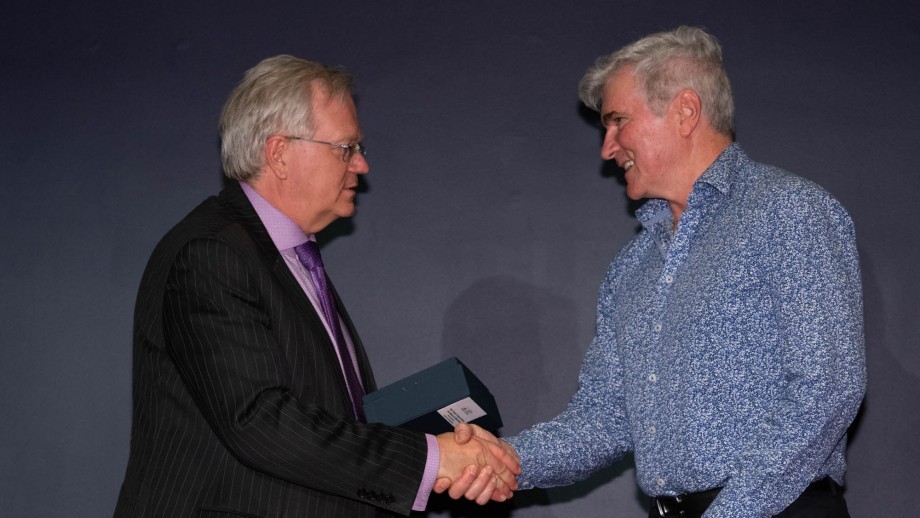
National and international advisory roles
Professor Mark Howden, CCI Director, has provided high-level input to the following advisory panels and forums:
- ACT Climate Change Council
- Global Alliance of Universities on Climate Change Academic Board Member
- Qld Government Drought and Climate Adaptation Program Advisory Group
- Meat & Livestock Australia Green House Gas and Livestock Technical Advisory Group
- CO2 Value Australia Director
- International Science Advisory Committee of FACCE-JPI
- National Climate Science Advisory Committee
- Lancet Obesity Commissioner covering climate, GHG and food security
- APEC Climate Centre Science Advisory Committee
- International Science Advisory Committee of the Chilean Centre for Climate Science and Resilience
- Editorial Board of the journal Climate Risk Management
- Science Committee for the 2019 Transformation Conference
- Farmers for Climate Action
Departmental briefings
The CCI has conducted briefings on climate change for the following organisations
- Department of Environment and Energy – multiple briefings
- Department of Foreign Affairs and Trade (DFAT) – multiple briefings - and Ambassador for the Environment
- Department of Agriculture and Water
- Australian Centre for International Agricultural Research (ACIAR)
- Murray Darling Basin Authority
- ACT Government
Parliamentary briefings
The CCI has conducted the following parliamentary briefings on climate change:
- 6 Federal parliamentary briefing sessions
- 1 State parliamentary briefing
Diplomatic engagement
The CCI has conducted several briefings with High Commissions and Embassies in Australia, including France, Spain, Sweden and UK.
Other briefings
The CCI Director has also briefed a range of industry bodies, NGOs and community groups including:
Agriculture
- National Farmers’ Federation Finance and Sustainability Committees
- Dubbo Grains Research and Development Corporation
- Farmers for Climate Action: Masterclass , Stanthrope Mtg, Panel (Canberra)
- Cattle Council Board and Advisory C’ttee
- Translational Photosynthesis Conference (Brisbane
- NSW Grasslands Conference
- Cotton Collective Conference (Colleambally)
- MH Premium Farms Pty Ltd (Wagga)
- Hovells Ck Landcare
- Creating WA Agribusiness Solutions Conference (Perth)
- Dairy Manufacturers (Melbourne)
- Hazelnut Conference (Canberra)
- Victorian Agriculture Webinar
- Birchip Cropping Group: Building Climate Resilience conference
- Riverine and SW Slopes Climate Outlook
- TA Field Estates Pty Ltd
Emergency/Disaster/Policy
- Rapid Response Conference
- Southeast Asia Disaster Prevention Research Initiative Forum (Kuala Lumpur)
- Biosecurity Conference (Gold Coast)
- Warragul Climate Risk Conference
- NZ Policy Forum (Dunedin, NZ)
- Defence Entrepreneurs Conference
- Climate Change Authority board
- NRM Chairs Conference (video)
- National Biosecurity Forum (Canberra)
Energy
- Clean Energy Regulator Staff meeting
- SmartEnergy Council Webinar
- Future Electricity Conference (Sydney)
Youth/schools/community
- National Youth Science Forum
- St Columba Anglican School (Port Macquarie)
- Geography Teachers Assoc SA
- Uniting Church (Canberra)
- Goulburn Citizens Climate Lobby
Other
- Bendigo and Adelaide Banks webinar
- EcoArts Conference (Wollongong)
- Council of Australasian Museum Directors Board
Roundtable discussion with policymakers
The CCI has hosted three roundtable discussions in 2019, attended by 87 policy makers, researchers, NGOs and industry representatives. These included:
- Managing climate risk with Ernst Rauch of Munich RE – attended by 30
- Governance of emerging climate technologies with Janos Pasztor, of the Carnegie Climate Governance Initiative (C2G) – attended by 35
- The new CO2 Utilisation industry and its promises for climate and the economy – attended by 22
Policy engagement by research theme
CCI members are engaged with policymakers on climate at an international, national and state / territory level on an ongoing basis. Here are a few examples (far from comprehensive):
Climate science
Emeritus Professor Ian Noble Attended meeting of and Primary Industries Education Foundation Australia and Geography Teachers Association to take part in panel discussion on incorporating climate change into school syllabuses.
Climate change adaptation
Emeritus Professor Ian Noble was asked by the Asian Development Bank to lead the preparation of a report (“Community Resilience Partnership Program”) scoping how to engage and direct more resources for adaptation to communities. This involved engaging with institutions as diverse as the ADB, IIED (International Institute for Environment and Development), the Global Adaptation Centre and Civil Society Organizations and missions to Manila, Ulaan Baator and Bangkok. Professor Noble has also been providing advice to the Global Adaptation Centre on implementing aspects of the recent report from the Global Commission on Adaptation.
Climate change and biodiversity
Professor Craig Moritz (Research School of Biology & Centre for Biodiversity Analysis) chaired the Australian Academy of Science enquiry into Darling River fish kills, caused by a mix over extraction and serious drought. Read the Investigation of the causes of mass fish kills in the Menindee Region NSW over the summer of 2018–2019 report.
International climate change negotiations
Dr Virginia Marshall acted as a Pacific representative to the UN Sustainable Development Goals Climate Change preparatory meeting in Mexico in September 2019.
Dr Siobhan McDonnell led the adoption of a climate litigation session on behalf of the Vanuatu govt has been accepted as part of the Climate Law and Governance Day of the UNFCCC COP25.
Climate change and drought
Dr Boyd Hunter made an oral submission on ‘Socioeconomic impacts of drought’ to the Joint Agency Drought Taskforce, Developing a Commonwealth Strategy for Drought Preparedness and Resilience coordinated by Department of Prime Minister and Cabinet in March 2019.
Climate change and health
Dr Arnagretta Hunter has met with various Federal and ACT Government politicians to highlight interactions between health and climate change.
Ruth Karis is a national representative for the Dietitians Association of Australia for the International Confederation of Dietetic Associations (ICDA) Food Sustainability Initiative. In her role she has participated in three International collaborations in 2018 and 2019 and she’s been considering how the ICDA recognises its responsibility to contribute to food system sustainability.
Climate communications
In 2019, the CCI was commissioned by the Department of Energy and the Environment to create communications products around managing climate risk.







